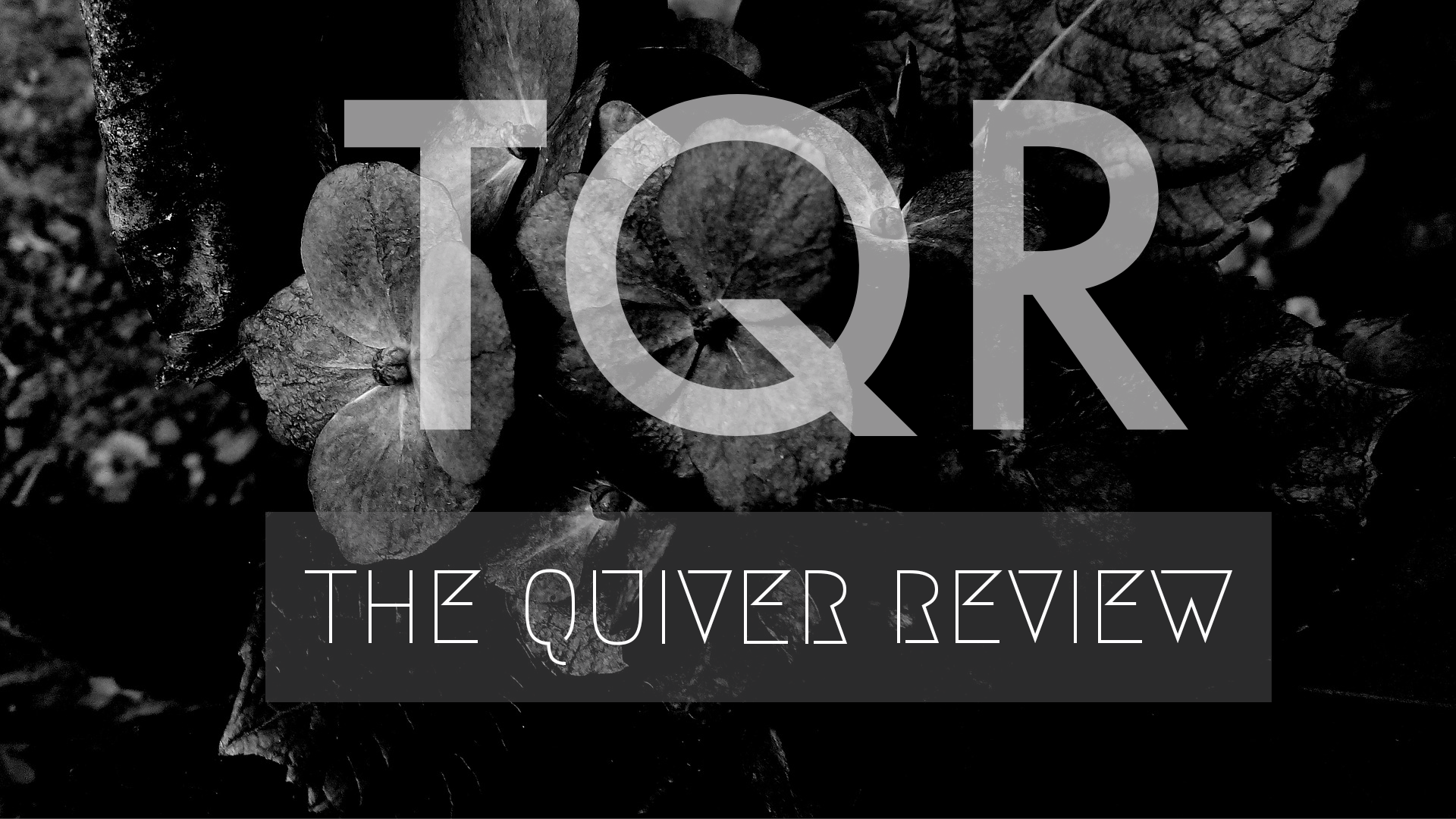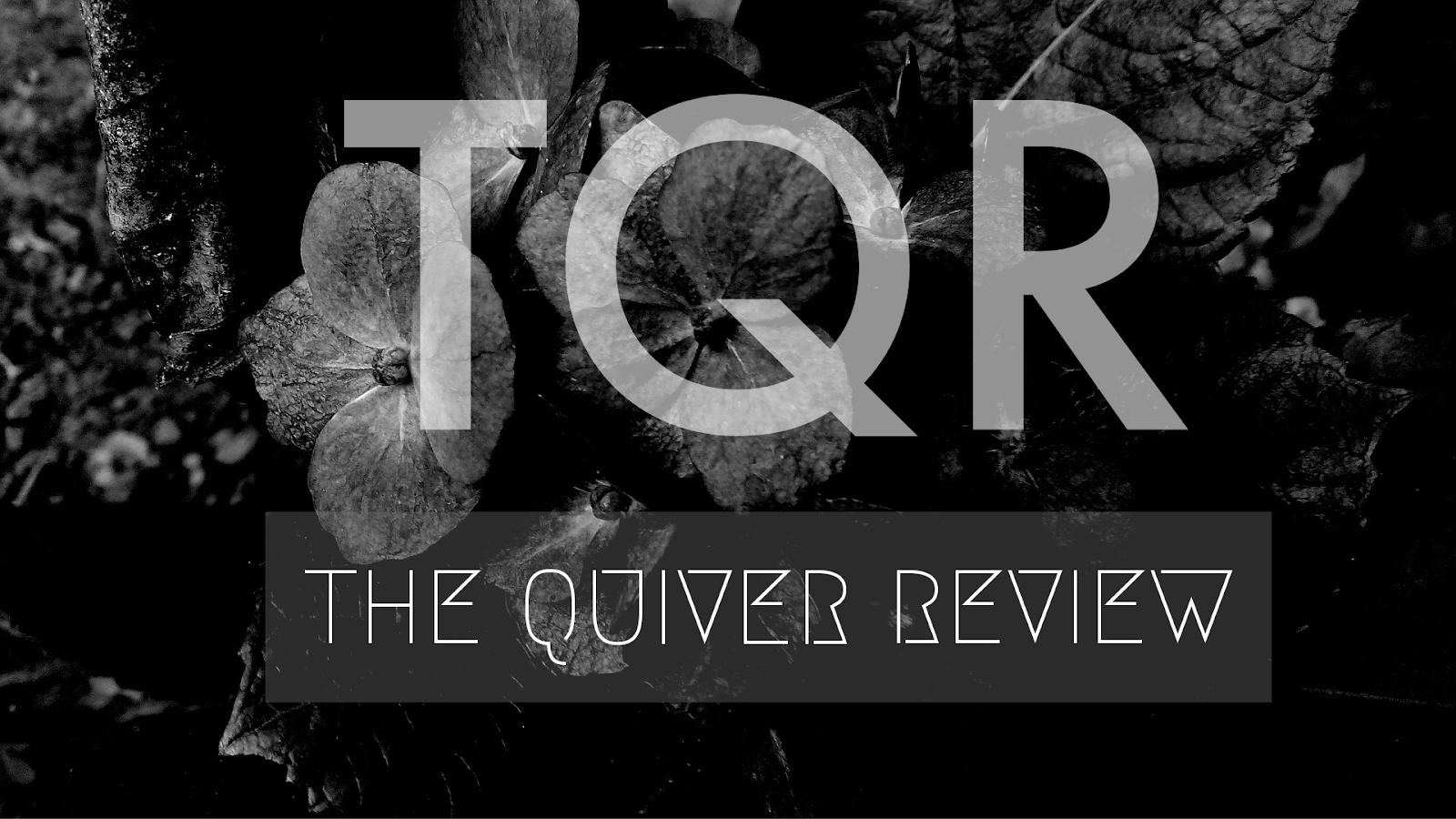Like a dead plant : Gerald Onyebuchi
 |
Ewa Gerald Onyebuchi is a budding Nigerian writer from South east, who writes both short stories and poems. His jaw still drops each time he gets published. He is an alumnus of Professor Chigozie Obioma's 2021 creative writing masterclass. His short story, "Wearing my skin," was shortlisted for the Ibua journal 2020 bold continental call: Imagining a new Africa. . So far he has been published in literary journals and magazines like Ibua journal, whimsicalpoets.com, brittle paper, afritondo, nantygreens, penmancy.com, bengaluru review, asterlit.org and elsewhere. If he's not writing, he is either taking a walk in order to clear his head of writers' block or thinking of what to write. Sometimes, if lucky, you can catch him just fiddling around facebook and instagram to ease off boredom, other times he's taking a nap. Like a dead plant |
The day Rayinudo tried to take her life I was at my boyfriend's place, a two-bedroom flat in
Gwagwalada, Abuja, kissing and touching.
We lay on the rug, our heads propped up a pillow so thick and soft like freshly baked bread.
Our eyes were still affixed to the Plasma TV plastered to the wall and, once in a while, bright light from the screen flashed across our faces. Then Obiora's thick fingers crawled down my bellybutton, and slipped into my pants. They lingered there, fiddling, stroking the tufts of hairs planted on my vagina, until I came undone. Suddenly I grabbed his face and buried my lips on his.
Almost immediately, the phone on the center table opposite us started to ring. But I didn't pick it.
It rang again yet I ignored it, my whole body seemed to have dived too deep into the river of passion to return to the surface. Just as I thought the phone had decided to shut its mouth, the ringing reinstated itself.
Obiora paused, and held me at arm's length. "I think you should answer the call?"
"No. Not now. Later in the night I will call the person."
The phone continued ringing and ringing until it stopped.
But I did not call back that night. I never did.
The following morning, I woke up to the beep of my phone, placed on the table from across. Reluctantly I reached for it. I scrolled up, imputed my password. Twelve missed calls, and a message boldly written popped up on the screen. It was from Mama, Ranyinudo's mother.
GOOD MORNING, MY DAUGHTER. HOW ARE YOU? WE HAVE BEEN CALLING YOUR LINE SINCE YESTERDAY, BUT YOU WERE NOT PICKING. RANYINUDO ALMOST KILLED HERSELF YESTERDAY. WE ARE AT ST MARY'S HOSPITAL, OKIGWE.
"Jesus! No!" I screamed.
Obiora, who was beside me on the bed, rose instantly. "Baby, what is it?"
I showed him the text.
*
I am in Owerri, Imo State, beside Ranyinudo, both of us lying sideways on the bed whose springs squeal each time she turns to one side or stretches a hand or leg. I continue to pat her hair as she falls asleep, her snores gradually rising and falling like ocean tides.
Suddenly the door snaps and clicks and groans as it opens. Mama Ranyinudo tiptoes in with Arinze by her side.
"How is she?"
"Mama, she's asleep," I say.
"Finally. Osebuluwa, be praised. "
I watch as Arinze scrambles from his mother's side and lands with both knees on the bed. The springs yelp again.
"How's Aunty?" Arinze asks. I smile. There's such innocence and tenderness in his voice and about him, that forces my eyes to mist. I wonder what is running through his mind now, how he is coping with this; I can't but imagine how his small heart would have shrunk greatly, perhaps melt, from the weight of grief if his only sister and sibling had died. "She's fine. At least she's sleeping," I say.
Mama clutches his wrist and they walk to the door. "Ngwa, Arinze, bia. Come let's go. Your Aunty is sleeping already, don't disturb her."
Although it's been two weeks since she was discharged from the hospital, I fear she might suffer another relapse. These days everyone tiptoes around her like she is a shattered glass. Doors are shut with extra care, as if something would snap if they are slammed too hard. Following Mama's instruction not to let her remain alone, I don't leave her side, even if she demands some lone time.
Each time she hurries to the toilet to take a piss or shit, my heart skips a beat. So I am always eager to follow her, but she stops me just by door and say, "Don't worry, Ifemelu. I am alright. Nothing is going to happen." And then she adds, teasingly, "By the way you can't come in here, my shit smells so bad. Like real bad."
I can't still believe she tried to take her life, can't believe she almost made me friendless and perpetually unhappy, that she nearly succeeded in burying her mother and the entire family in grief, the second time. Her mother was yet to recover fully from the shock of their father's death; his demise had affected her in inexplicable ways.
Growing up here in Owerri, I knew Papa Ranyinudo as a jovial man. Each time I visited Ranyinudo, especially on weekends, I planned for it, as though I were traveling for Christmas; on Friday after school, I went to the supermarket to buy new sets of clothes and shoes to add to my old ones and I bought some clothes for Ranyinudo and Arinze, later that evening I sat in the middle of my bed, sorting out the dresses to take and those to leave behind while my mother stood by the door of my room hissing and shaking her head. "Bia, Ifemelu ichori ga biri there? Do you want to go live there?"
"Mama, I'm not going to live with them now,"
"Eh, I know. But where are you packing these many clothes to?"
"Ugonna, leave my clothe jor. "Oya give me that dress!" I scowled at my younger brother for stealing a black blouse from the heap of clothes sitting on the bed, and runing away to hide behind mother.
I rose to my feet and marched towards him. "Mama, tell Ugo to give me my blouse."
She grabbed it from him, and planted it on my right palm. "Oya, nyem! Give it to me! Are you a girl."
Ugonna muttered under his breath, and his big forehead puckered in a frown as he stomped out.
"You better come home on Sunday o. Shey you know I can't do all the house chores alone."
I had already started to bask in the euphoria of Ranyinudo's family, the love her parents showered on me as though I were their child, so that I did not return home that Sunday. And my mother didn't bother to call my cellphone to remind or shout at me. Perhaps she knew I wouldn't come home that day, perhaps she knew I was in safe hands.
The Saturday evening, following our return from shoprite, we gathered under the mango tree, which stood in the middle of the square compound, to play ludo and cards. I laughed and marveled at the way Papa Ranyinudo shook his head, frowned and muttered, ojoro, ojoro, like a child; the unabashed air about him, as he and his wife kissed in front of us, and they called each other honey and darling. The mere sight of them brought tears to my eyes and the surge of memory. I wished my Papa did not die, I wished he never took the night flight to Lagos, I really wished the rains, as soon as they arrived that evening, had lingered, until midnight, that way he wouldn't have been able to travel.
In the landscape of my mind I still saw my father playing with me and my brother, the three of us running around an open field or playing suwe in our large fenced compound, like we used to do while he was alive, sometimes he were dancing with my mother, their bodies in a perfect embrace, swaying to Luther Vandross's dance with my father again. But other times, in my dreams, we sat beside each other on a bed of grass, the birds flying over our heads and the insects chirping at some corner, and he was unusually quiet, staring at me, his eyes seemed to describe a lot of things at the same time: sadness, love, pain, and regret.
*
I try to imagine what would have happened if Ranyinudo actually died, if Mama hadn't rushed in to stop her from lacerating her wrists with a rusted razor blade after drinking half a glass of hydrogen peroxide. I imagine if the doctor, after hours spent in the theater, had failed to flush out the poisonous liquid from her system and restore her to consciousness.
I feel guilt prick me like a knife. Perhaps if only I had picked the phone, that night her mother called, perhaps if I had been around she wouldn't have contemplated suicide.
I don't know if I would have been able to bear her loss. Ranyinudo and I have been friends since childhood. We went to the same schools together—primary, secondary and the university.
And then we were posted to the same state for our compulsory one year national youth service.
Although Ranyinudo was convivial by nature, the kind of person who went to parties and hung out with guys she barely knew, the kind that made a grand entry into clubs and made the loudest sound, tethering every eye to herself, the kind that was so free and fun to be with, she was never promiscuous. She knew, immediately, when to draw the curtain, to set the tables straight, whenever things had started to topple. During those parties I had accompanied her to and, unknown to her, she was gradually helping me out of my shell because I was not the type that attended parties or spoke so casually to boys, especially those I didn't know anything about.
Soon, I was chatting with the guys at the club, drinking but careful not to get stoned. And she was always quick to come to my rescue each time I was been assaulted. Once, on one of those parties, a bald headed man whose breath reeked of beer reached forward in order to grab my breasts, as though they belonged to him. And Ranyinudo hurried to where I was, to forestall further harassment.
"Guy, respect yourself and please let her be. This is isn't how to treat a lady."
"Fuck you, bitch," he cussed and spat on the floor. Who you be? I mean who are you to tell me how to treat a lady? He tried to touch me again and she threw a jab right in his face, and he fell on the ground, groaning with pain. He tried to lift himself up but he was too drunk to. He passed out. Those that saw this turned their eyes towards our direction: some whistled, some cheered, others laughed, and yet others booed.
But one evening, I was not in the mood to go out, so she went alone. And then, at night, she returned. Almost dead drunk. She vomited and vomited on the floor of our room and, finally, after giving her some medications, the vomiting stopped and she fell asleep.
In the days that followed Ranyinudo changed; her face was swollen and her papaya-coloured skin became scaly and harshly freckled; she vomited often, passed out watery stool, and complained of fever and fatigue. At first I thought she was pregnant since her symptoms came every morning, and were almost synonyms to the morning sickness experienced during the first four months of pregnancy. "Babe, you sure you know carry belle?" I asked as she trudged out of the toilet where she had vomited the third time. She was dressed in light green khaki pants and sleeveshirt, ready to go for our weekly CDS at the secretariat.
She gave me a weird look. Her cap fell from her hand to the floor. "Girl, which kind talk be dat one nah. Who give me belle? If nah joke better stop am," she snapped.
"Sorry. No vex. I just dey worried."
"Eh, I understand. No worry. I think nah fever. I go go buy drug for chemist."
Picking the cap from the floor, she stomped out.
But then, after going for a pregnancy test, it was certain she was not pregnant. Yet, the symptoms continued. And I begged her to see a doctor, to know exactly what was wrong. I don't know if Ranyinudo ever visited the hospital but after that day, the symptoms magically seized.
Then, some months passed, and we were done with national service. She got a job at some tech company in Owerri. And I was working at Abuja, as a teacher.
I had returned from work when my phone rang. It was Ranyinudo. I was slightly worried, given that I had spoken to her that morning and at school. I answered the call. Almost immediately, she began to cry. Profusely.
"Ifem, I am finished. My world has crumbled."
"What is it? Calm down and explain to me."
"I am HIV positive o."
I shut my eyes and inhaled. I needed oxygen to cool my burning head least my brains exploded.
"What? When? How? I mean how did it happen?"
"I don't know o. Ifem I don't know."
And just as I was trying to deal with the impact of the first news, another hit me like a grenade. "Chima has called off the wedding. Ifem, he said he's no longer interested," she cried.
Chima and Ranyinudo had been together since university days. Sometimes I was jealous of my friend, of how much care and love he lavished on her. Even after he left Nigeria for Germany, in our second year, to study medicine and surgery, he always kept in touch with her.
Later, I would call Chima to talk to him, to plead with him, and his words would sting like a bee, leaving me swollen with sadness. "Can you imagine, she expects me to take her back after she cheated on me and got infected? I have never touched Ranyinudo, each time I tried, she instead we wait till we were married. I had no idea that she was planning to do it with someone else."
"Are you sure she's really positive?"
"Come on, don't tell me that. We have been to three different labs, and all of them confirmed she's positive. And to think I was going to settle down with her. Thank goodness I didn't. Tell her it's over, and she should stop calling my line," he snapped.
Then he called her, Ranyinudo, my friend, a whore, and ended the call.
Ranyinudo kept calling and crying into the phone. "Please, Ifem, talk to Chima for me. Biko, I can't leave without him," she pleaded. In a bid to pacify, I told her to let Chima go, to forget him, that he didn't deserve her, that someone better would surely come her way.
Ranyinudo soon remembered how and when she got infected with the virus: that night she returned home drunk. The following morning, she realized her pant was stained with blood. Somebody at the club had taken advantage of her tipsiness to rape her.
"Why didn't you tell me, Ranyi?" I scolded her on the phone.
"I'm sorry. I was so scared, so I didn't tell anyone about it. She also added that she had taken some spermicidal drugs to kill the sperms.
In the coming days, I would begin to fret, waking up in the middle of the night, pacing my room, wondering if, perhaps, I had caught the virus too since we lived together all through service year. I would try to delve inside my memory, to the times we had spent together, perhaps searching for clues—things shared like buckets, cutlery, bathing soap— to be sure I had not also contacted the virus. I would ask some of my doctor friends and they would tell me that one can only be infected with HIV through unprotected sex, or through broken skin, or sharing of sharp objects, or contacts with the wounds of an infected person; but not through the sharing of cutlery or hair brush or clothes. In all these they insisted I got tested.
Still the turbulence in my heart wouldn't die. I would take my plight to Google, demanding to know the signs and symptoms of a person infected with HIV. Google would say the same things my doctor friends had said.
Even Obiora would notice and become worried. I would cut down on the number of times I visited him a week, only trimming down to twice a week instead of four. At his place we wouldn't touch, and if he insisted on touching or kissing me, I told him that I was not in the mood. Although I would see the sadness on his face, he wouldn't touch me. He always respected my decision.
Finally I would take their advice and go for HIV screening; I would do it three times to be certain I didn't have the virus. And all three turned out negative.
*
This morning, my eyes open to the beams of light streaming into the room from the drawn curtain. From time to time, a gentle wind lifts the curtain. I catch a glimpse of Ranyinudo by the mirror, adjusting the wig on her head. I'm so surprised to see her up before me. Clearing my throat, I ask where she's going to.
She turns around and says,"I'm going to work," her lips stretching with a smirk, both eyes sparkling with new life.
My mouth hung down, and my eyes stuck out in their sockets. Quickly I swallow the words, "Work? You mean it?"
"Don't you want me to come with you?"
"No o. Ifem, don't worry. I am fine now. And by the way, aren't you returning to Abuja again. I know your students would be missing you now. She smiles. There seems to be a rejuvenating air about her, something freshly compelling in the way she talks, in the way her face lits up with a smile, like a dead plant, suddenly, sprouting new flowers.
A knock on the door. She says come in. Mama strolls in.
"Good morning, mama," I say.
"Good morning, Ifemelu."
"The mama, good morning," Ranyinudo says.
"Ada'm, good morning. How are you today?"
"Fine, mama. Very fine."
"And where are you going to this early morning, looking this beautiful?"
Ranyinudo's face flushes with a bold smirk. "Mama, have you forgotten it's Monday and I need to be at work today? And later in the day, I would drop by at the salon to make my hair and fix my nails."
"Are you not going to eat something? you need food for your drugs," Mama says, as Ranyinundo walks to the door, the tail of her satin blue gown billowing.
"Don't worry, Mama. I will buy food on my way to work, and my drugs are right in my bag."
Mama stands, arms folded, eyes wide open, intermittently staring at her and then at me. I sense she's also as amazed as I am because Ranyinudo, ever since she caught the virus, her whole life seemed to have taken an abrupt pause; she had stopped going to work or even hung out with friends because she was so absorbed with fear that people already knew, even though they didn't, that she was positive, sometimes ate only once in a day or refused to eat anything, at some point stopped taking her Anteretroviral drugs, refused to come out of her room, and cried and cried until she fell asleep.
Before she ambles out of the room, she tickles my right cheek and says, "thank you for everything." And then plants a kiss on Mama's forehead.
"What is happening to her?" Mama asks me.
A smile curves my lips, as I lean against the wall behind me. "I think she's getting better. Finally, she's coming out of her shell," I say.











Comments